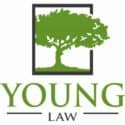Buying/Selling a Small Business
A variety of legal issues should be considered when purchasing a small business. There are legal requirements that are associated with permits, licenses and registrations. All the required laws for operating your business must be met. The necessary regulations vary.
Regulatory Considerations
Particular businesses have restrictions related to the legal form the enterprise is allowed to take. Some businesses, generally the learned professions, cannot be practiced as a regular corporation. These businesses are restricted to being a ‘professional corporation’ format, whereas, some of the other businesses may only be operated as corporations.
Legal Obstacles
Besides the specific and general regulations that are based on the activity of the business, there could be legal obstacles. A good example of this is a state permit or license requirement being necessary for those engaging in particular activities. This generally pertains to the individual obtaining certain training or college degree.
Federal Requirements
Most businesses, unless a sole proprietor business, have to apply for an EIN. This is an Employer Identification Number. This number must be obtained whether the business has employees or not. Also, businesses that provide health insurance to their employees may need to obtain a National Standard Employer Identifier (NSEI) to complete their electronic health transactions.
The majority of businesses are not required to obtain a federal permit or license. That said, if the business is involved in one of the activities listed below, the responsible federal agency should be contacted to determine the requirements for that type of business.
Drug Manufacturing
Investment Advising
Broadcasting
Meat product preparation
Selling firearms, tobacco or alcohol
Ground transportation
State Requirements
Many kinds of businesses have to obtain some form of a professional or business permit or license from the government of the state they are in. While the licensing requirements are not the same in each state, some of the most common kinds are:
Occupations & Professions
Frequently this license is necessary for physicians, contractors, real estate agents, hairdressers, funeral directors and accountants.
Business Licenses
This is the most important document as it is required for conducting basic business functions and tax purposes.
Tax Registration
If the state where the business is being operated has state income tax, you will have to obtain an EIN number from the state’s Treasury Department or Department of Revenue. If the business deals with retail sales, a sales tax license will also need to be obtained.
Employer Registrations
If the business is going to have employees, you will most likely be required to contribute to unemployment insurance.
Trade Name Registration
If the business is only going to be operated within a local community, registering the name of the company with the state is probably sufficient.
Licenses Based on Products Sold
The majority of states require that special licenses be obtained to sell lottery tickets, liquor, firearms and gasoline.
Local Requirements
A city or county license is a general license granting the business owner the ability to legally operate a business in the jurisdiction of that city or county.

